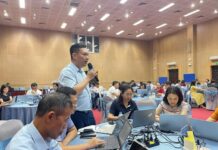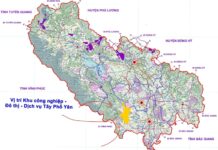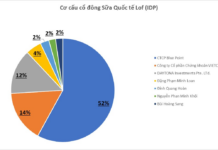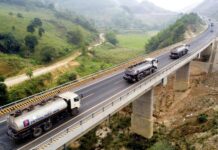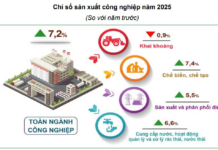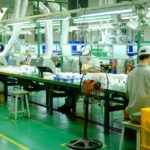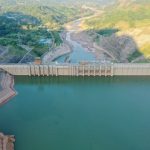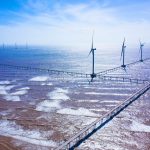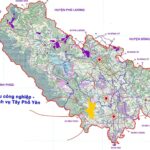Mr. Ta Dinh Thi, Vice Chairman of the National Assembly’s Committee on Science, Technology and Environment, made this observation at the Green Energy Forum, titled “NetZero-oriented Clean Energy Development Prospects: International Experience and Effective Strategies for Vietnam.” The event was organized by the Vietnam Economic Times, in collaboration with the Climate Change Department of the Ministry of Natural Resources and Environment.
RAPID POLICY SHIFT
Speaking at the forum, Mr. Thi stated that achieving net-zero emissions by 2050 is an inevitable global development goal, primarily pursued through a robust energy transition and low-emission development. This also represents a new “rule” for global trade and investment, established after the COP26 conference.
Vietnam is among the five most vulnerable countries to climate change globally and is increasingly affected by its direct impacts, including rising sea levels, extreme weather events, and changing rainfall patterns.
According to a 2022 World Bank estimate, Vietnam’s economy currently suffers approximately $10 billion in losses, equivalent to 3.2% of its GDP annually, due to climate change impacts. Without appropriate adaptation and mitigation measures, the effects of climate change on Vietnam are projected to reach 12% to 14.5% of GDP per year by 2050.
Recognizing the negative consequences and vulnerabilities caused by climate change, Mr. Thi mentioned that, in recent years, the Party and the State have promulgated various guidelines, policies, laws, and measures to effectively respond to climate change and ensure sustainable development.
These efforts have particularly focused on the energy sector, as evident in resolutions such as Resolution No. 55-NQ/TW of 2020 by the Politburo; the Prime Minister’s Decisions No. 896/QD-TTg of 2022, Decision No. 888/QD-TTg, and Decision No. 500/QD-TTg approving the Power Development Plan VIII; and Decision No. 893/QD-TTg, among others.
Notably, the Prime Minister recently issued Decision No. 876/QD-TTg, dated July 22, 2022, approving the Action Program on Green Energy Transition, Carbon and Methane Emissions Reduction in the Transport Sector. This program aims to develop a green transportation system, fully operated by electricity or green energy by 2050, aligning with Vietnam’s net-zero emissions target. Additionally, in December 2022, Vietnam joined the Just Energy Transition Partnership (JETP).
Alongside the efforts of government agencies, Mr. Thi acknowledged that many businesses have undertaken activities to mitigate greenhouse gas emissions, contributing to the net-zero goal. These include companies like PVN, Petrolimex, Vinfast, Vinamilk, and TH True Milk, with Vinfast specifically targeting net-zero by 2040.
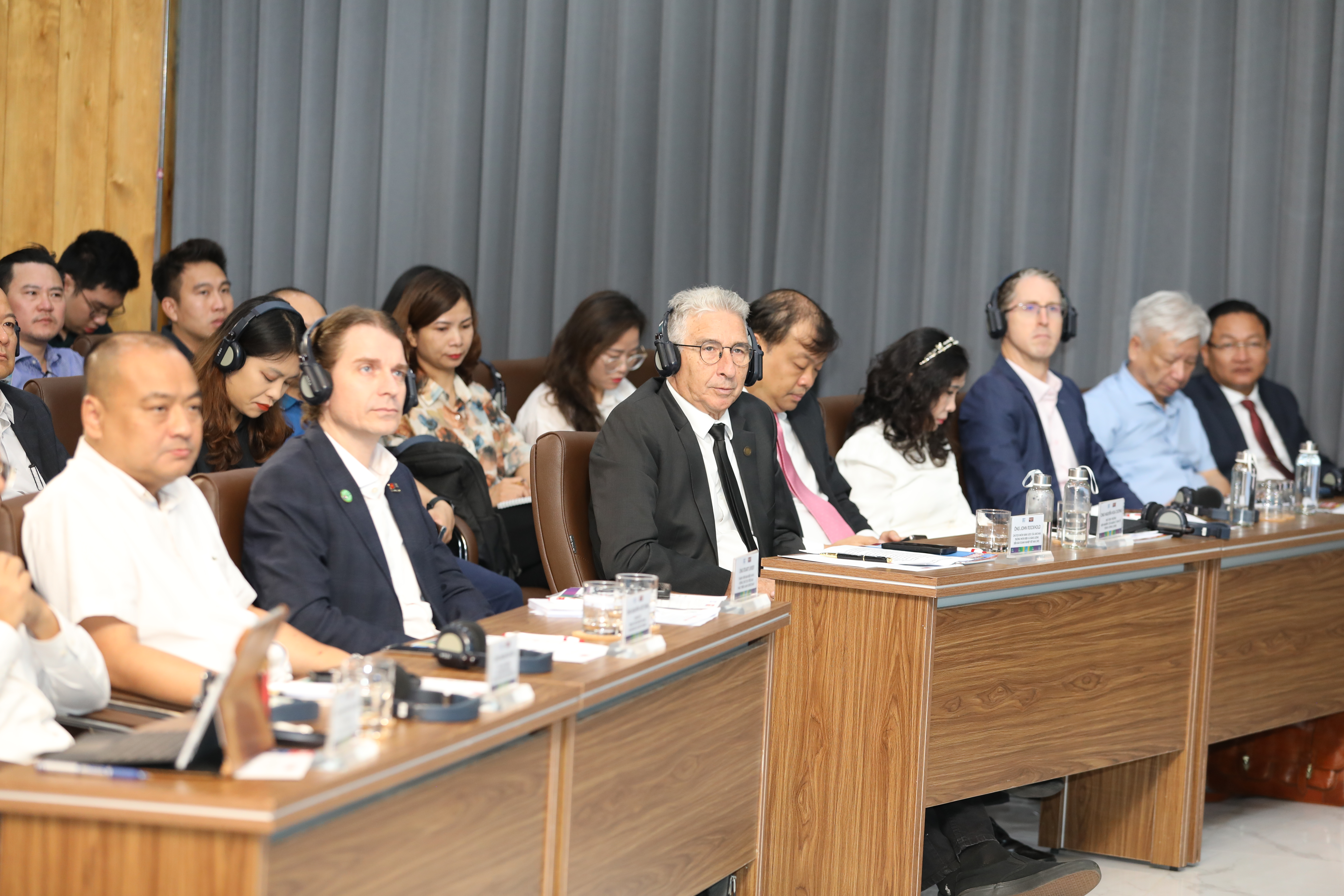
Companies in the food and beverage industry have also actively engaged in reducing greenhouse gas emissions. Banks have partnered with the government to achieve net-zero emissions, energy transition, and green economic development.
“This demonstrates that at different levels, we have proactively and actively taken steps to accelerate the transition from a brown to a green economy and develop a low-carbon economy,” Mr. Thi remarked.
ENTIRE POLITICAL SYSTEM’S INVOLVEMENT NEEDED
Once again, the Vice Chairman of the National Assembly’s Committee on Science, Technology, and Environment emphasized that the development of renewable energy sources is an inevitable and irreversible trend.
The necessity of transitioning to green and clean energy becomes more urgent as the consequences of climate change become increasingly apparent and severe.
Notably, forecasts indicate that domestic electricity demand will grow by about 8-10% annually in the coming years. Meanwhile, fossil fuel sources like coal, oil, and natural gas are finite and detrimental to the environment… This presents a significant challenge in ensuring a stable and sustainable energy supply while increasing the pressure to seek alternative energy solutions.
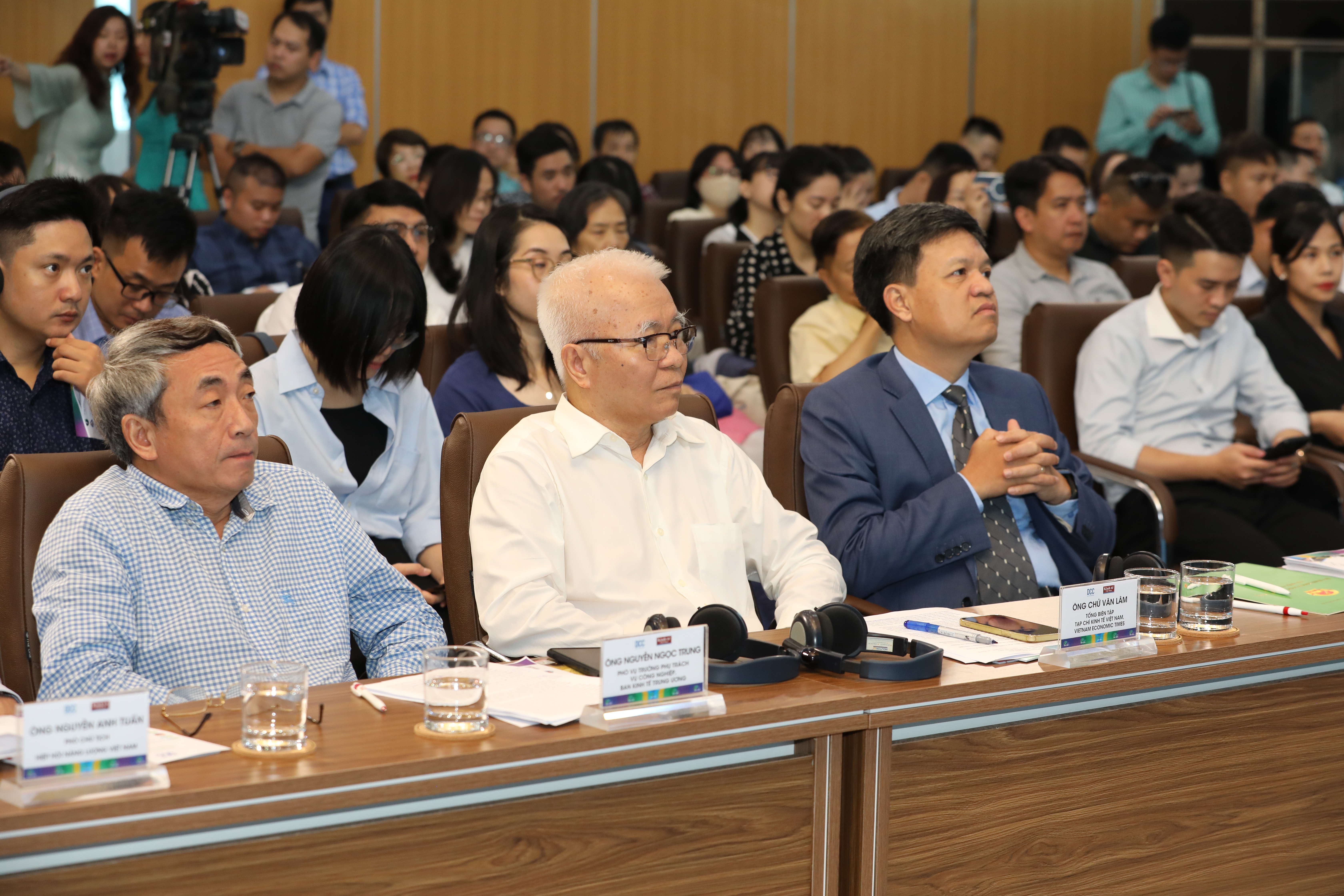
Moreover, according to Mr. Thi, the energy transition is a prolonged process, requiring the engagement of the entire political system, especially businesses.
To effectively transition to clean energy, the leader of the National Assembly’s Committee on Science, Technology, and Environment suggested the following three issues:
First, there are limitations and inadequacies in the policies and laws related to energy development. Therefore, it is necessary to continue formulating policies and amending certain laws to align with reality, attracting resources for energy development while ensuring energy security and promoting renewable energy.
Second, the energy transition will require a significant increase in investment while minimizing impacts on electricity costs. To meet this financial demand, a combination of resources is needed, including international financial support, private investment, and state budget allocation.
Vietnam should continue discussions with bilateral and multilateral development partners to secure concessional financial resources to support the energy transition.
Third, in the short term, the energy transition may lead to some adverse effects, particularly regarding social issues (for example, concerning the 90,000 coal miners currently working in mines and pits). We need to further strengthen the formulation and implementation of social policies and occupational transition policies to ensure that people benefit from the energy shift without affecting their livelihoods.
Additionally, there are matters related to technological autonomy, finance, national defense, and security…
Bình Dương seeks Lego Group for Lego Land expansion
The provincial leaders of Binh Duong are excited about the opportunity to develop a Lego Land project in the area, using the available clean land resources. They hope that the Lego Group will consider this proposal and invest in the project in the near future.
Sharp Decline in Consumption, Warning of Very Low Water Levels in Hydropower Reservoirs
The Ministry of Industry and Trade’s Electricity Regulatory Authority has announced that electricity consumption during the Lunar New Year holiday is significantly low nationwide. In light of the low water levels in the hydropower reservoirs in the northern region, coal-fired and renewable energy power plants have been maximally utilized.










